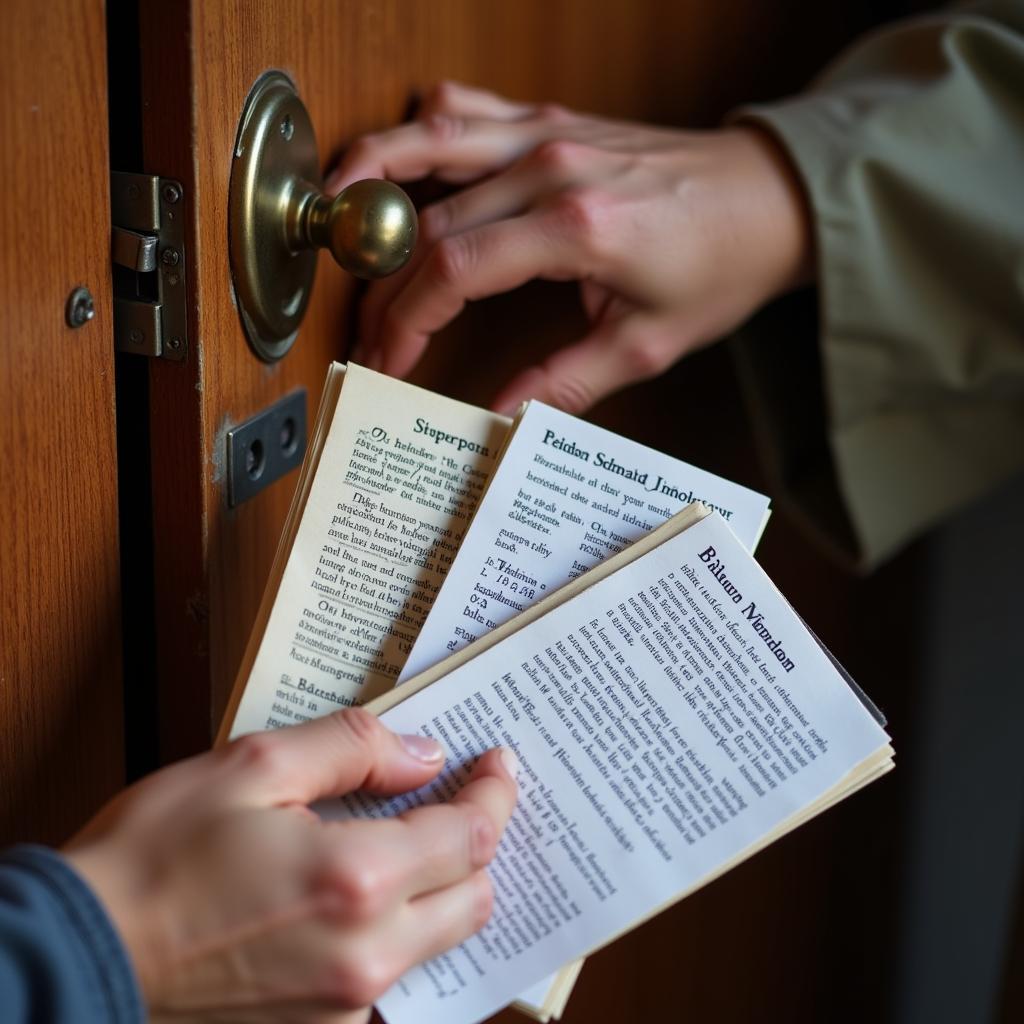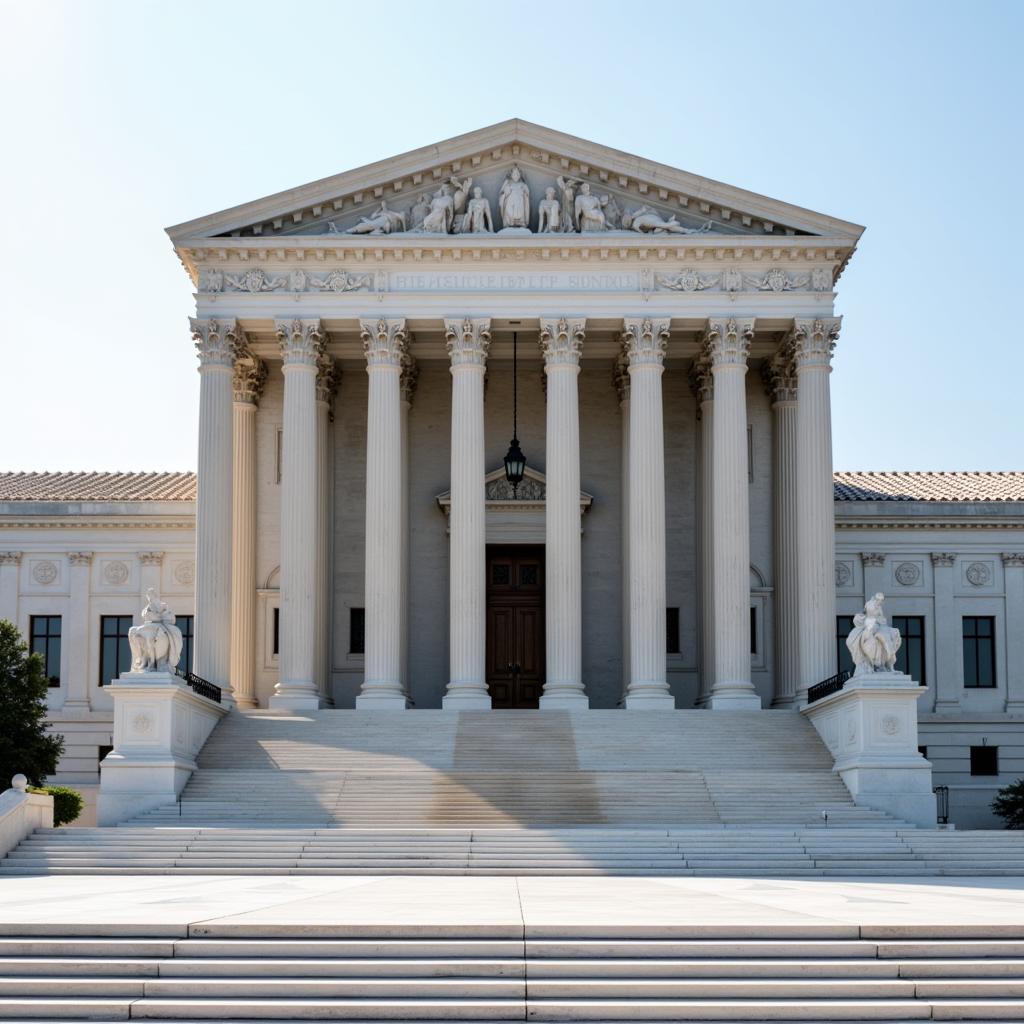The landmark case of Watchtower Bible and Tract Society v. Stratton (2002) stands as a pivotal moment in the ongoing dialogue surrounding religious freedom and the delicate balance between the exercise of faith and the maintenance of public order. This case, which reached the Supreme Court of the United States, grappled with the constitutionality of a local ordinance that placed restrictions on door-to-door advocacy, particularly impacting religious groups like the Jehovah’s Witnesses.
The Ordinance and Its Impact
In 1998, the Village of Stratton, Ohio, implemented an ordinance requiring individuals or groups seeking to engage in door-to-door advocacy to obtain a permit from the mayor. This requirement extended to a range of activities, including distributing information and engaging in religious proselytizing. While seemingly neutral on its face, the ordinance raised concerns about its potential to infringe upon the First Amendment rights of religious organizations like the Watchtower Bible and Tract Society, the legal entity representing Jehovah’s Witnesses.
The Jehovah’s Witnesses, known for their door-to-door ministry as a central tenet of their faith, argued that the ordinance presented a significant obstacle to their religious practice. They contended that requiring a permit before engaging in religious conversations on residents’ doorsteps constituted a violation of their free exercise of religion, as protected by the First Amendment.
 Jehovah's Witness Door Knocking
Jehovah's Witness Door Knocking
The Supreme Court’s Ruling
The Supreme Court, in a unanimous decision, struck down the Stratton ordinance, affirming the paramount importance of safeguarding religious freedom. The Court recognized that door-to-door advocacy, including religious proselytizing, occupies a unique position within the realm of protected speech. This form of communication, often deemed a cornerstone of a free society, allows for the open exchange of ideas and beliefs.
Justice John Paul Stevens, writing for the Court, emphasized the potential for abuse inherent in permitting schemes like the one implemented by Stratton. He cautioned against the possibility of such ordinances being used to suppress unpopular or minority viewpoints, thereby hindering the free flow of information and stifling dissenting voices.
 Supreme Court Building
Supreme Court Building
Implications for Peaceful Coexistence
The Watchtower decision serves as a potent reminder of the delicate balance that must be struck between maintaining public order and upholding the fundamental freedoms enshrined in the Constitution. While municipalities retain the authority to regulate certain aspects of door-to-door solicitation, they must tread carefully to avoid encroaching upon the free exercise of religion.
Moreover, this case underscores the importance of fostering an environment where diverse viewpoints, including religious beliefs, can be freely expressed. The open exchange of ideas, even those we might find disagreeable, is vital to a healthy and vibrant democracy.
The legacy of Watchtower lies not in pitting religious freedom against public order, but rather in seeking harmonious ways for both to coexist. It prompts us to engage in respectful dialogue, seeking common ground while respecting the boundaries set by the Constitution.
FAQs About Watchtower Bible and Tract Society v. Stratton
1. What was the main issue in the Watchtower case?
The main issue was whether a local ordinance requiring permits for door-to-door advocacy violated the First Amendment rights of religious groups like Jehovah’s Witnesses.
2. How did the Supreme Court rule in the Watchtower case?
The Supreme Court unanimously ruled that the ordinance was unconstitutional, as it infringed upon the free exercise of religion.
3. What are the implications of the Watchtower decision?
The decision reaffirms the importance of religious freedom and the need for a balanced approach to regulating door-to-door activities, ensuring that such regulations do not unduly burden the exercise of faith.
Exploring Further:
For a deeper understanding of related legal cases and their impact on religious freedom, consider reading about:
-
Watchtower Bible and Tract Society v. Village of Stratton – This link provides a comprehensive overview of the case, its background, and its significance.
-
Justice Society of America 5 – While seemingly unrelated, this fictional team of superheroes highlights the constant struggle for justice and the protection of individual liberties.
These cases, both real and fictional, underscore the ongoing quest to uphold fundamental freedoms within a just and equitable society.
Need Support?
At the Society For Peace, we believe in promoting understanding and fostering peaceful coexistence. If you have questions or need support, please don’t hesitate to reach out:
Phone: 02043854663
Email: [email protected]
Address: Khu 34, Bắc Giang, 260000, Việt Nam
Our dedicated team is available 24/7 to assist you.